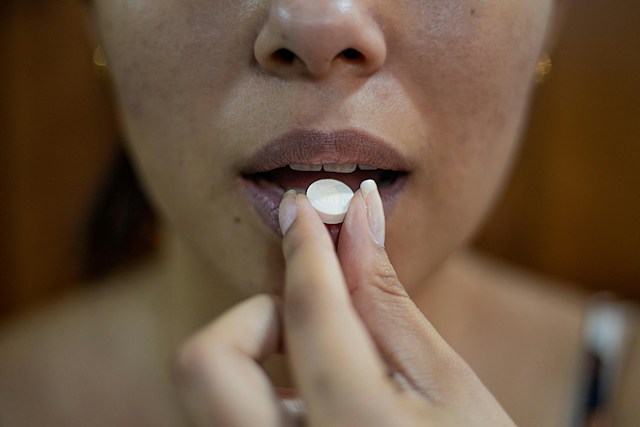In recent years, the landscape of substance use treatment has witnessed a remarkable transformation driven by cutting-edge innovations. As society grapples with the complexities of addiction, advancements in technology, therapy modalities, and holistic approaches have emerged to provide more effective solutions.
In this article, we will dive into the forefront of these innovations. We will shed light on how they are reshaping the way we approach and address substance use disorders.
Precision Medicine in Treatment
Precision medicine marks a systemic shift in substance use treatment, leveraging individual genetic and biomarker data to tailor interventions. According to the JAMA Network, a statistical approach to precision medicine utilizes patient-level data and formalizes clinical decision-making. It involves a model that is composed of the patient’s features, key decision points, and primary outcomes to be optimized.
By understanding the unique genetic makeup and responses of each patient, healthcare providers can optimize treatment plans. They can select medications and therapies that align with the specific biological and psychological factors at play. This targeted approach enhances treatment efficacy while minimizing the risk of adverse reactions, providing a more nuanced and personalized path to recovery.
Precision medicine holds the promise of revolutionizing the effectiveness of substance use treatment by addressing the diversity in how individuals respond to various interventions.
For more information on how precision medicine can enhance substance use treatment at our detox facility, please visit our page for detox facility.
Remote Monitoring
Telehealth has revolutionized substance use treatment by breaking down barriers to access and providing remote support options.
According to Medical News Today, telehealth visits assist those seeking drug addiction treatment offered via telehealth. Those who got telemedicine services were more likely to stick with medication-assisted treatment for drug misuse.
Furthermore, a 2021 assessment of telemedicine for drug use disorder treatment discovered that it was just as successful as in-person therapy. Virtual consultations allow healthcare practitioners to perform examinations, conduct therapeutic sessions, and even track progress without the limits of physical closeness.
This innovation addresses challenges related to stigma and geographical limitations, ensuring that individuals in need can receive timely and effective support. Remote monitoring tools further enhance this approach by providing real-time data on vital signs, medication adherence, and behavioral patterns.
The integration of telehealth and remote monitoring not only improves access to care but also promotes ongoing engagement and accountability in the recovery journey.
Neurofeedback and Brain Stimulation
Advancements in neuroscientific approaches are reshaping substance use treatment through techniques like neurofeedback and brain stimulation. Neurofeedback allows individuals to gain real-time insights into their brain activity and learn to self-regulate. This promotes neuroplasticity and aids in the rewiring of neural pathways associated with addiction.
Brain stimulation techniques, such as transcranial magnetic stimulation (TMS), target specific brain regions implicated in addiction, offering a non-invasive method to modulate neural activity.
According to UTHealth Houston, the magnetic pulses induce a small electrical current in the brain, activating or deactivating brain cells underneath the coil’s core. The TMS equipment can therefore be used to modify the firing patterns of brain regions impacted by addiction.
These interventions hold promise in addressing the underlying neurological aspects of substance use disorders, providing new avenues for enhancing treatment outcomes and promoting recovery.
Pharmacogenetics in Medication-Assisted Treatment
Pharmacogenetic testing is revolutionizing medication-assisted treatment by tailoring drug interventions based on an individual’s genetic profile. This personalized approach helps healthcare providers identify the most effective medications and optimal dosages, minimizing adverse reactions and improving overall treatment outcomes.
By understanding how a patient’s genes influence drug metabolism and response, providers can make informed decisions about the selection and titration of medications. This results in a more precise and individualized treatment plan.
Pharmacogenetics in medication-assisted treatment represents a significant step towards optimizing the therapeutic benefits of medications while minimizing the risks associated with trial-and-error approaches.
Substance Use Treatment Software
Specialized substance use software is streamlining the management of patient information and treatment protocols. These platforms facilitate seamless communication among healthcare providers, ensuring coordinated and personalized care.
According to Accumedic Computer Systems, substance use treatment software often incorporates machine learning algorithms to analyze vast datasets. This aids in treatment optimization and the prediction of potential challenges.
Additionally, these tools enhance efficiency by automating administrative tasks, allowing clinicians to focus more on direct patient care. The integration of technology in the form of software improves treatment outcomes while contributing to the ongoing evolution of evidence-based practices in addiction treatment.
Peer Support Apps and Online Communities
Peer support apps and online communities have emerged as vital components of substance use treatment, fostering connection and mutual support. These digital platforms provide individuals in recovery with a virtual space to share experiences, exchange coping strategies, and offer encouragement.
The accessibility of peer support through mobile apps transcends geographical barriers, creating a global network of individuals united in their journey towards recovery. These communities not only combat isolation but also contribute to the establishment of a supportive and understanding environment.
As technology continues to connect people worldwide, peer support apps and online communities play a crucial role in building resilience and promoting sustained recovery.
In conclusion, the current wave of innovations in substance use treatment represents a profound shift towards individualized and technology-infused approaches.
Precision medicine uses genetic insights, telehealth dismantles barriers, neuroscientific advancements address neurological factors, specialized software streamlines management, and peer support fosters a global community.
Together, these advancements signal a transformative era, promising more effective, personalized, and interconnected solutions for those grappling with substance use disorders. This amalgamation of cutting-edge strategies redefines the treatment landscape while instilling hope for a future where recovery is both nuanced and universally accessible.







